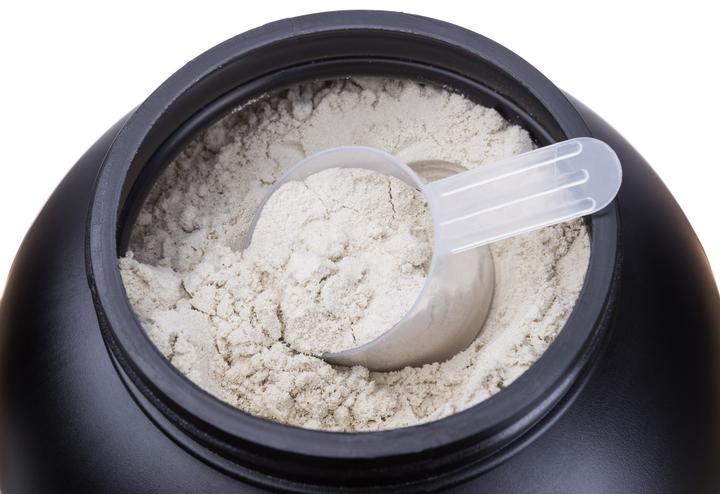Caseinates are used for their many functional properties, and their nutritional and dietary qualities. They are commonly used for protein enrichment in yoghurts. They improve coagulation properties in cheeses, and compensate for variations in the protein content of milk. They are also used in many other products such as creams and specialty cheeses.
Caseinates are manufactured from acid caseine. These are proteins used for their numerous functional properties (emulsification, foaming, stabilising or thickening) and for their nutritional and dietary qualities.
Calcium caseinates are made from fresh skimmed milk. The proteins in the curd are made soluble and functional by neutralisation. This is done using an alkali containing calcium before continuing to drying.
Adding calcium alkali makes this caseinate particularly interesting for its nutritional values. In fact, calcium is an essential mineral for human consumption, which is involved in the renewal of cells in the body. It performs many functions at the level of vital organs, contributing to several essential health functions (cell reproduction, muscle contraction, heart and nervous system activity, blood clotting) and plays an important role in skeletal development and maintenance (bone construction and health).
The industrial applications of calcium caseinate are:
- Baby Food
- Clinical Nutrition
- Sports nutrition
- Dietary products
- Cheese and processed cheese
Sodium caseinates are made from fresh skimmed milk. The curds from the skim milk acid coagulation is solubilised by neutralisation. The protein contained in the curd is then rendered soluble and functional. An alkali containing sodium (soda, sodium hydroxide) is then added before the dehydration (drying) step. Such highly purified proteins have good nutritional value and excellent functional properties: emulsification, thickening, texturizing and low viscosity. The neutralisation is carried out dry in an extruder. The dry extraction of the final product is close to 94%. Before being packaged, extruded sodium caseinates are crushed. This allows particle size to be adapted.
Some possible applications of sodium caseinate are:
- Dietetics (clinical Nutrition, slimming)
- Sports nutrition
- Ready-to-eat meals
- Dairy products
- Coffee whiteners
- Meat processing (sausage)
Soda-lime caseinates are made from fresh skimmed milk. The proteins in the curd are made soluble and functional by neutralisation. For this, two alkalis containing sodium and calcium are used prior to drying.
